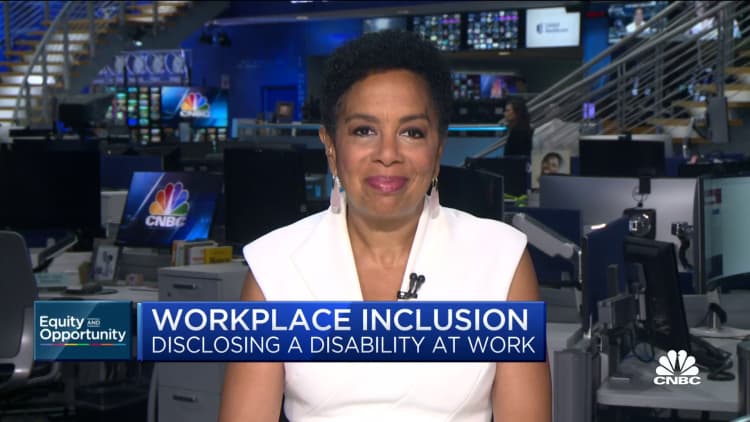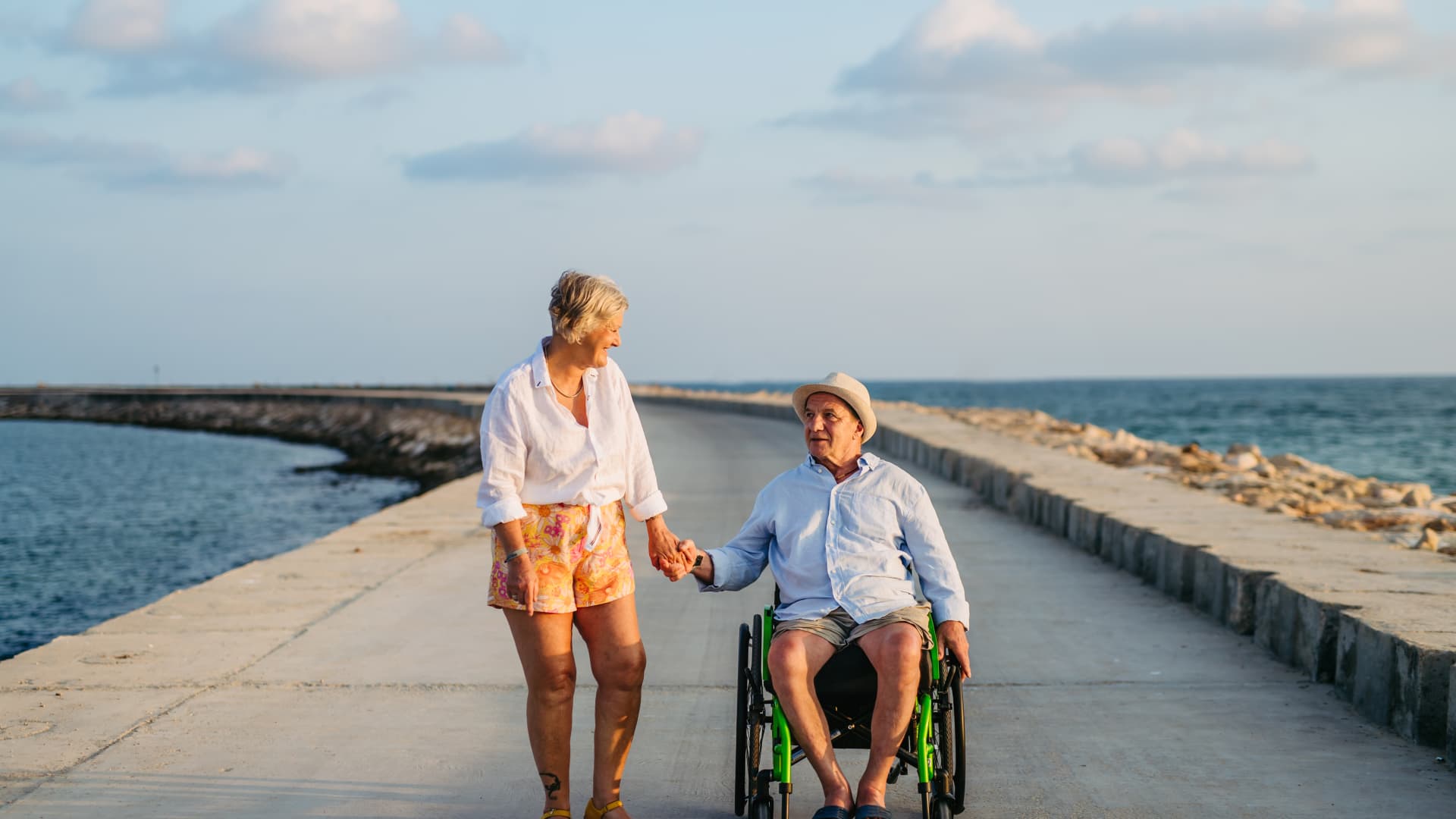Halfpoint Images | Moment | Getty Images
The Americans with Disabilities Act was signed into law 33 years ago to protect people with disabilities from discrimination.
However, disabled individuals still encounter significant obstacles when it comes to building wealth.
In an effort to assist disabled individuals with lower incomes in saving, Senator Bob Casey, D-Pa., who serves as chairman of the Senate Special Committee on Aging, is introducing a new proposal known as the ABLE MATCH Act. This legislation would establish a federal dollar-for-dollar match for both new and existing ABLE accounts, benefiting individuals who earn $28,000 or less per year.
More from Personal Finance:
Long Covid has resulted in financial hardships for patients
Less than 5% of housing is accessible to older, disabled Americans
Hybrid work becomes the new normal as companies reconsider work habits
ABLE accounts, created through federal legislation in 2014, allow eligible individuals to save money for disability-related expenditures without jeopardizing their eligibility for federal programs such as Medicaid or Supplemental Security Income. These tax-advantaged accounts permit tax-free withdrawals for qualifying expenses, and any investment gains may grow on a tax-deferred basis.
The ABLE program has been a “lifeline for thousands of people with disabilities across the nation,” according to Casey.
“However, there are still too many people whose lives would be made easier by the program, but don’t have sufficient funds to open an account,” added Casey.
Proposal aims to introduce a 100% federal match

The ABLE MATCH Act would establish a federal dollar-for-dollar match for individuals making $28,000 or less, with the match decreasing for each dollar earned above that threshold.
This threshold would be adjusted for inflation, as well as for heads of households and married couples.
The purpose of the bill is to encourage greater participation in ABLE accounts by people with lower incomes and disabilities.
The introduction of this proposal is an “extremely exciting development,” stated Thomas Foley, executive director at the National Disability Institute.
“There are still too many people whose lives would be made easier by the program, but don’t have sufficient funds to open an account.”
Sen. Bob Casey
Democratic senator from Pennsylvania
“This initiative provides an incentive to a group of individuals who have not been incentivized, and who have actually been discouraged from saving for decades,” Foley explained.
According to Foley, people with disabilities are twice as likely to live in poverty compared to those without disabilities.
Research conducted by the National Disability Institute has revealed that individuals with disabilities need to spend approximately $28,000 more each year to maintain a standard of living equivalent to that of individuals without disabilities.
These additional costs arise from needs such as accessible transportation, proximity to workplaces, and the care of service animals.
Individuals with disabilities, particularly younger ones, may find it challenging to save in an ABLE account due to limited disposable income, Foley noted.
Legislation passed last year extended the age limit for onset of disability from 26 to 46, allowing individuals until 2026 to become eligible for ABLE accounts.
This change may result in as many as 14 million people qualifying for participation in ABLE accounts, Foley concluded.
Denial of responsibility! VigourTimes is an automatic aggregator of Global media. In each content, the hyperlink to the primary source is specified. All trademarks belong to their rightful owners, and all materials to their authors. For any complaint, please reach us at – [email protected]. We will take necessary action within 24 hours.


